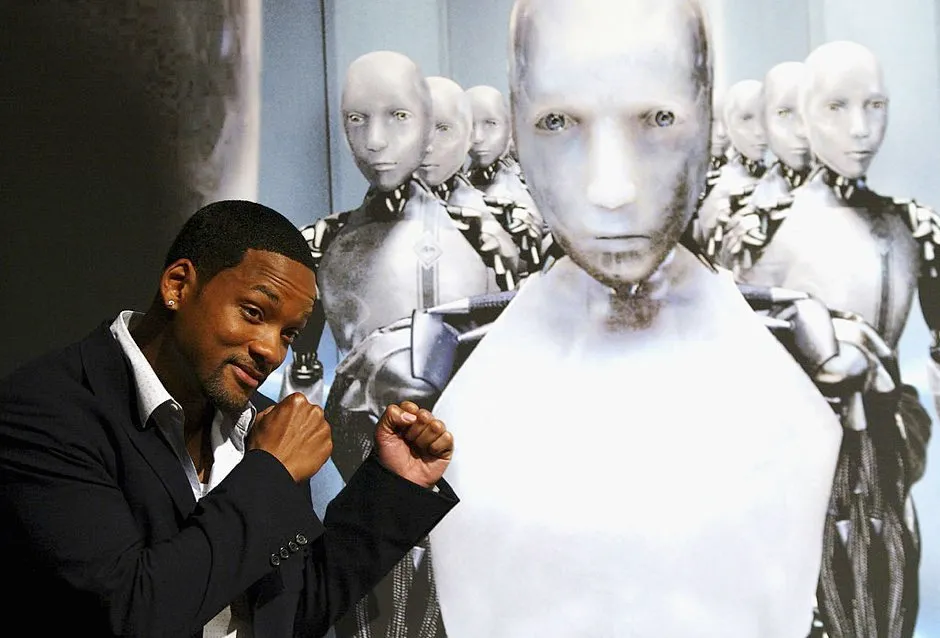The “whiteness” of artificial intelligence (AI) removes people of colour from the way humanity thinks about its technology-enhanced future, researchers argue.
University of Cambridge experts suggest current portrayals and stereotypes about AI risk creating a “racially homogenous” workforce of aspiring technologists, creating machines with bias baked into their algorithms.
The scientists say cultural depictions of AI as white need to be challenged, as they do not offer a “post-racial” future but rather one from which people of colour are simply erased.
Read more about racism in science:
- Subhadra Das: What part has science played in racism?
- Adam Rutherford: Can science ever be rid of racism?
- Angela Saini: Is racism creeping into science?
According to the researchers from Cambridge’s Leverhulme Centre for the Future of Intelligence (CFI), like other science fiction tropes, AI has always reflected racial thinking in society.
In the study published in the Philosophy and Technology journal, they argue there is a long tradition of racial stereotypes when it comes to extraterrestrials – from the “orientalised” alien of Ming the Merciless to the Caribbean caricature of Jar Jar Binks.
However, AI is portrayed as white because unlike species from other planets, it has attributes used to “justify colonialism and segregation” in the past, the researchers suggest.
Dr Kanta Dihal, who leads CFI’s Decolonising AI initiative, said: “Given that society has, for centuries, promoted the association of intelligence with white Europeans, it is to be expected that when this culture is asked to imagine an intelligent machine, it imagines a white machine.
“People trust AI to make decisions. Cultural depictions foster the idea that AI is less fallible than humans.
“In cases where these systems are racialised as white, that could have dangerous consequences for humans that are not.”
Read more about robots:
- Where does the word 'robot' come from?
- What if robots took our jobs?
- Retro robots: 13 old androids doing run-of-the-mill things
The experts looked at recent research from a range of fields, including Human-Computer Interaction and Critical Race Theory, to demonstrate that machines can be racialised and that this perpetuates “real world” racial biases.
This includes work on how robots are seen to have distinct racial identities, with black robots receiving more online abuse, and a study showing that people feel closer to virtual agents when they perceive shared racial identity.
Dr Dihal said: “One of the most common interactions with AI technology is through virtual assistants in devices such as smartphones, which talk in standard white middle-class English.
“Ideas of adding black dialects have been dismissed as too controversial or outside the target market.”

The researchers conducted their own investigation into search engines and found that all non-abstract results for AI had either Caucasian features or were the colour white.
Co-author of the paper, Dr Stephen Cave, executive director of CFI, said: “Stock imagery for AI distils the visualisations of intelligent machines in western popular culture as it has developed over decades.
“From Terminator to Blade Runner, Metropolis to Ex Machina, all are played by white actors or are visibly white onscreen.
“Androids of metal or plastic are given white features, such as in I, Robot.
“Even disembodied AI – from HAL-9000 to Samantha in Her – have white voices.
“Only very recently have a few TV shows, such as Westworld, used AI characters with a mix of skin tones.”
Dr Dihal added: “AI is often depicted as outsmarting and surpassing humanity.
“White culture can’t imagine being taken over by superior beings resembling races it has historically framed as inferior.
“Images of AI are not generic representations of human-like machines – their whiteness is a proxy for their status and potential.”
Dr Dihal concluded: “The perceived whiteness of AI will make it more difficult for people of colour to advance in the field.
“If the developer demographic does not diversify, AI stands to exacerbate racial inequality.”
Reader Q&A: Why do we make robots look like humans?
Asked by: Roberta Wild, Lincoln
We’ve always been fascinated by the idea of creating autonomous machines that resemble us, and if they need to interact closely with us, we prefer them to look familiar.
Human-like robots such as Honda’s ASIMO, Boston Dynamics’ Atlas, and the childlike iCub built by the Italian Institute of Technology are amazing demonstrations of our technology, but they still have a long way to go – and when they look nearly human but not quite, they end up looking seriously freaky to us.
Perhaps we should just let robots be the shape they need to be, in order to best carry out their function.
Read more:
